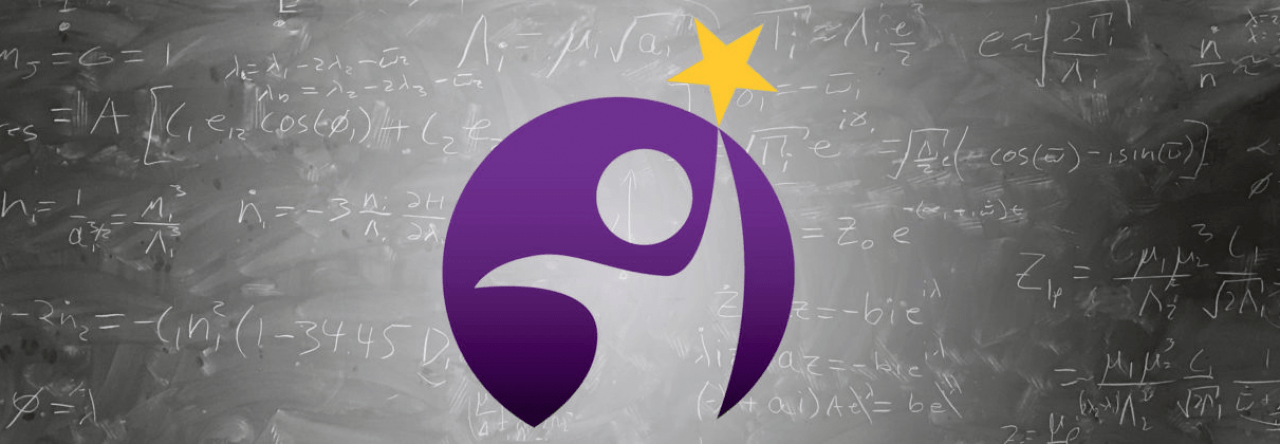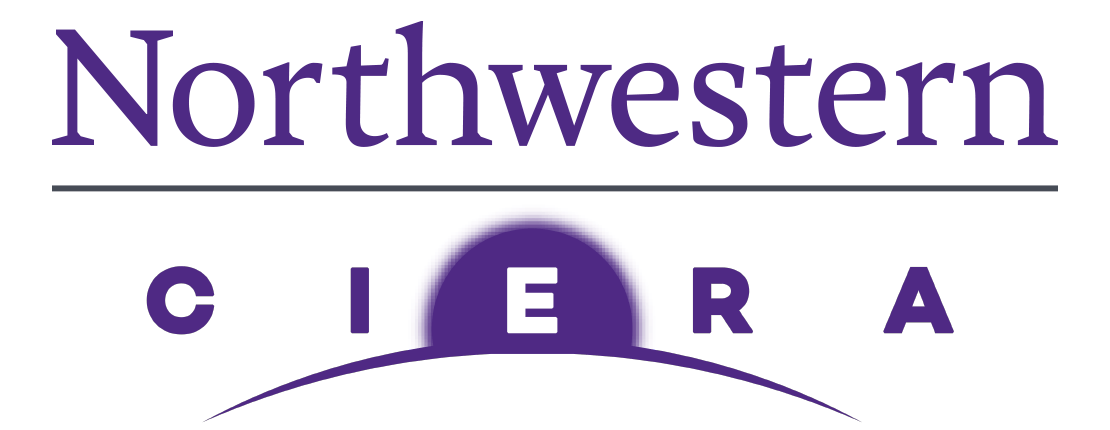Many different people are involved with the Reach for the Stars program.
To learn more about Current and Past Fellows, as well as our original Leadership Team, please toggle through the menus below. Members of each participant group are listed in chronological order, with most recent participants appearing first.
Graduate Fellows
Mike Bueno (2019-2020)
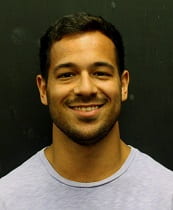 Mike received his B.S. from Haverford College in Astrophysics with a minor in Spanish studies. He is an Astronomy PhD student at Northwestern University. He is part of the LISA Scientific Collaboration and works with Shane Larson. He is working on figuring out ways to use gravitational waves and simulations to learn more about how massive black holes grow and to learn more about the environments near massive black holes. He loves giving talks about the latest exciting news in astronomy, social latin dancing around the Windy City, and biking along lake shore drive!
Mike received his B.S. from Haverford College in Astrophysics with a minor in Spanish studies. He is an Astronomy PhD student at Northwestern University. He is part of the LISA Scientific Collaboration and works with Shane Larson. He is working on figuring out ways to use gravitational waves and simulations to learn more about how massive black holes grow and to learn more about the environments near massive black holes. He loves giving talks about the latest exciting news in astronomy, social latin dancing around the Windy City, and biking along lake shore drive!
Paul Williams (2019-2020)
 Paul received a BA in Physics from the University of Chicago and wrote a BA thesis on dwarf galaxies that orbit the Milky Way. He is currently a PhD Student in Physics and Astronomy at Northwestern University. He is part of the BLAST-TNG (Balloon-borne Large Aperture Sub-millimeter Telescope – The Next Generation) Collaboration, and helped build a telescope that operates from a balloon in the upper atmosphere above Antarctica. Paul uses BLAST-TNG and other telescopes to study star formation and help us understand the process that formed the sun and eventually led to life on Earth. Outside of the lab he enjoys teaching astronomy, riding his bike when the weather is good, and reading a good book when it isn’t.
Paul received a BA in Physics from the University of Chicago and wrote a BA thesis on dwarf galaxies that orbit the Milky Way. He is currently a PhD Student in Physics and Astronomy at Northwestern University. He is part of the BLAST-TNG (Balloon-borne Large Aperture Sub-millimeter Telescope – The Next Generation) Collaboration, and helped build a telescope that operates from a balloon in the upper atmosphere above Antarctica. Paul uses BLAST-TNG and other telescopes to study star formation and help us understand the process that formed the sun and eventually led to life on Earth. Outside of the lab he enjoys teaching astronomy, riding his bike when the weather is good, and reading a good book when it isn’t.
Michael Katz (2018-2020)
 Michael received two B.S. degrees from the University of Illinois for Material Science and Engineering and Engineering Physics. After spending some time in manufacturing, he returned to academia to work on his PhD with Professor Shane Larson. Michael focuses on developing computationally efficient models to achieve scientific goals currently out of reach with current computational infrastructure. He mainly focuses on the future space-based gravitational wave experiment LISA and its measurements of black hole binary and white dwarf systems.
Michael received two B.S. degrees from the University of Illinois for Material Science and Engineering and Engineering Physics. After spending some time in manufacturing, he returned to academia to work on his PhD with Professor Shane Larson. Michael focuses on developing computationally efficient models to achieve scientific goals currently out of reach with current computational infrastructure. He mainly focuses on the future space-based gravitational wave experiment LISA and its measurements of black hole binary and white dwarf systems.
Shi Ye (2018-2019)
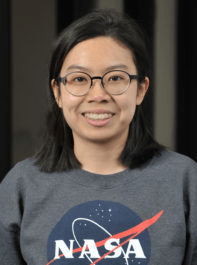 Shi is originally from China and received her B.S. in Physics from Zhejiang University. She is a PhD student in the Department of Physics and Astronomy at Northwestern University, where she works with Fred Rasio on globular cluster dynamics. In particular, she is working on how neutron stars form and evolve in globular clusters. Outside of academia, she enjoys engaging the public’s interest in astronomy, hiking and camping.
Shi is originally from China and received her B.S. in Physics from Zhejiang University. She is a PhD student in the Department of Physics and Astronomy at Northwestern University, where she works with Fred Rasio on globular cluster dynamics. In particular, she is working on how neutron stars form and evolve in globular clusters. Outside of academia, she enjoys engaging the public’s interest in astronomy, hiking and camping.
Zach Hafen (2017-2019):
 Zach is a PhD student in Physics and Astronomy at Northwestern, where he works with Claude-André Faucher-Giguère, as a member of the FIRE project. He looks at virtual galaxies and their surroundings to give insight as to how these massive structures form. Zach works with the Northwestern Academy for Chicago Public Schools to create vault, a place for high school students to answer in-depth questions about the world around them.
Zach is a PhD student in Physics and Astronomy at Northwestern, where he works with Claude-André Faucher-Giguère, as a member of the FIRE project. He looks at virtual galaxies and their surroundings to give insight as to how these massive structures form. Zach works with the Northwestern Academy for Chicago Public Schools to create vault, a place for high school students to answer in-depth questions about the world around them.
Michael Zevin (2017-2018):
 Michael received his B.S. from the University of Illinois in Astronomy, Physics, and Music. He is a PhD student in Physics and Astronomy at Northwestern University. He is part of the LIGO Scientific Collaboration and works with Vicky Kalogera. In particular, he is working on using gravitational waves to determine how binary stars evolve and the environments in which compact binary mergers occur, as well as developing citizen science projects for gravitational-wave data analysis. Outside of academia he enjoys enticing the public’s interest in astronomy, playing music around the Windy City, and looking up.
Michael received his B.S. from the University of Illinois in Astronomy, Physics, and Music. He is a PhD student in Physics and Astronomy at Northwestern University. He is part of the LIGO Scientific Collaboration and works with Vicky Kalogera. In particular, he is working on using gravitational waves to determine how binary stars evolve and the environments in which compact binary mergers occur, as well as developing citizen science projects for gravitational-wave data analysis. Outside of academia he enjoys enticing the public’s interest in astronomy, playing music around the Windy City, and looking up.
Katie Breivik (2017-2018):
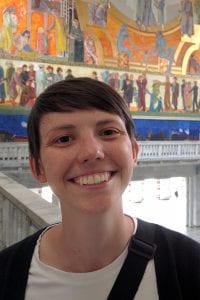 Katie received her BS in Physics from Utah State University. She received her PhD in Physics and Astronomy from Northwestern University, where she worked with Shane Larson studying the formation and evolution of compact binary systems and exploring how they can be observed with space-based gravitational wave detectors like LISA. In her spare time, she loves chatting about science with anyone who will listen and taking long walks through different Chicago neighborhoods.
Katie received her BS in Physics from Utah State University. She received her PhD in Physics and Astronomy from Northwestern University, where she worked with Shane Larson studying the formation and evolution of compact binary systems and exploring how they can be observed with space-based gravitational wave detectors like LISA. In her spare time, she loves chatting about science with anyone who will listen and taking long walks through different Chicago neighborhoods.
Fani Dosopoulou (2015-2018):
 Fani is originally from Greece and received her undergraduate degree in Physics and Astronomy from Aristotle University of Thessaloniki. She received her PhD in Physics and Astronomy from Northwestern University, where she researched orbital evolution of eccentric X-ray binaries with Vicky Kalogera. Following her graduate studies, Fani began working as a joint postdoctoral fellow at the Princeton Center for Theoretical Science (PCTS) and a Lyman Spitzer, Jr. fellow at the Department of Astrophysical Sciences at Princeton University.
Fani is originally from Greece and received her undergraduate degree in Physics and Astronomy from Aristotle University of Thessaloniki. She received her PhD in Physics and Astronomy from Northwestern University, where she researched orbital evolution of eccentric X-ray binaries with Vicky Kalogera. Following her graduate studies, Fani began working as a joint postdoctoral fellow at the Princeton Center for Theoretical Science (PCTS) and a Lyman Spitzer, Jr. fellow at the Department of Astrophysical Sciences at Princeton University.
Jason Hwang (2010-2012 and 2016-2017):
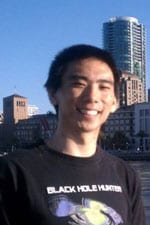 Jason graduated from The Pennsylvania State University with a BS in astronomy, physics, and mathematics. He received his PhD in Physics and Astronomy from Northwestern university. He worked with Frederic Rasio on computational astrophysics, using a smoothed particle hydrodynamics (SPH) code to study mergers of binary star systems in order to determine possible formation channels of twin neutron star binaries. In his free time he enjoys breakdancing. (hopefully spending so much time upside down gives a new perspective on problems)
Jason graduated from The Pennsylvania State University with a BS in astronomy, physics, and mathematics. He received his PhD in Physics and Astronomy from Northwestern university. He worked with Frederic Rasio on computational astrophysics, using a smoothed particle hydrodynamics (SPH) code to study mergers of binary star systems in order to determine possible formation channels of twin neutron star binaries. In his free time he enjoys breakdancing. (hopefully spending so much time upside down gives a new perspective on problems)
Niharika Sravan (2015-2016):
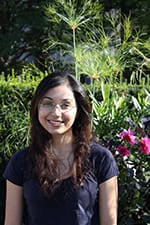 Niharika graduated with a B.Arch. (Honors) degree in Architecture and a minor in Physics from the Indian Institute of Technology, Kharagpur in 2011. She received her PhD in Physics and Astronomy from Northwestern University, where she worked with Vicky Kalogera on modeling the evolution of binary star systems to investigate the channels and mechanisms that produce ‘stripped-envelope’ supernovae, X-ray binaries and binary compact objects.
Niharika graduated with a B.Arch. (Honors) degree in Architecture and a minor in Physics from the Indian Institute of Technology, Kharagpur in 2011. She received her PhD in Physics and Astronomy from Northwestern University, where she worked with Vicky Kalogera on modeling the evolution of binary star systems to investigate the channels and mechanisms that produce ‘stripped-envelope’ supernovae, X-ray binaries and binary compact objects.
Adam Dempsey (2014-2016):
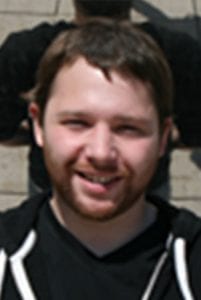 Adam received undergraduate degrees in both Physics and Astronomy from the University of Illinois at Urbana-Champaign. He received his PhD in Physics and Astronomy, researching computational astrophysics, using Northwestern’s Quest computing cluster to study the properties of convection as well as planet-disk interactions. During his time as a Reach for the Stars GK-12 fellow, I developed a set of resources that introduce Python to high school students, within the context of a high school physics curriculum.
Adam received undergraduate degrees in both Physics and Astronomy from the University of Illinois at Urbana-Champaign. He received his PhD in Physics and Astronomy, researching computational astrophysics, using Northwestern’s Quest computing cluster to study the properties of convection as well as planet-disk interactions. During his time as a Reach for the Stars GK-12 fellow, I developed a set of resources that introduce Python to high school students, within the context of a high school physics curriculum.
Thomas Wytock (2014-2015):
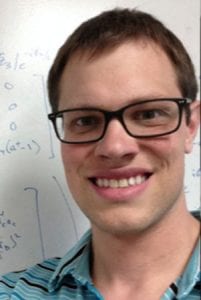 Thomas received his PhD in Physics from Northwestern University. His dissertation project was on the control of cell state by manipulating gene expression. Broadly, he looked into complex systems, looking for patterns in high-dimensional datasets, allowing a succinct description of the specific system.
Thomas received his PhD in Physics from Northwestern University. His dissertation project was on the control of cell state by manipulating gene expression. Broadly, he looked into complex systems, looking for patterns in high-dimensional datasets, allowing a succinct description of the specific system.
Following his graduate studies, Thomas began working as a postdoctoral researcher at Northwestern University with the Motter Group.
Cody Dirks (2014-2015):
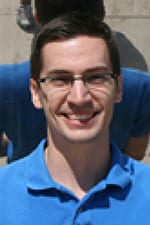 Cody received his BS degree in Physics from Southern Illinois University – Edwardsville, where he helped in preparing the newly constructed campus telescope for data collection.
Cody received his BS degree in Physics from Southern Illinois University – Edwardsville, where he helped in preparing the newly constructed campus telescope for data collection.
He received his PhD in Physics and Astronomy, where his research involved characterizing the interstellar medium in various regions of the Milky Way Galaxy by analyzing how it varies in both space and time.
Colin Fitzpatrick (2014-2015):
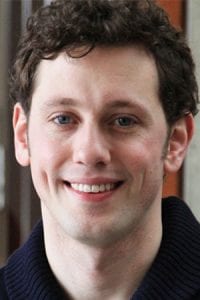 Colin received his PhD in Technology and Social Behavior, a joint PhD program in computer science and communication studies at Northwestern University.
Colin received his PhD in Technology and Social Behavior, a joint PhD program in computer science and communication studies at Northwestern University.
Colin trained first in ethnography, he now uses both qualitative and quantitative methods in his current work on the types of information people share with nearby strangers on location aware social apps.
Marc Royster (2012-13 and 2014-15):
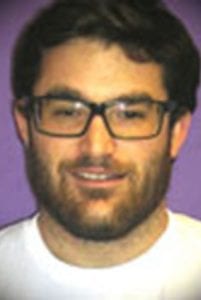 Marc is originally from California where he received his Bachelor’s Degree in both Physics and Math at the University of California, Santa Barbara. He received his PhD from Northwestern University in Physics and Astronomy, where he used giant radio telescopes to probe the ionized and molecular gas that is at the center of our Milky Way galaxy along with a supermassive black hole, all of which is 27,000 light years away. This is in an effort to better understand star formation in such a complex environment.
Marc is originally from California where he received his Bachelor’s Degree in both Physics and Math at the University of California, Santa Barbara. He received his PhD from Northwestern University in Physics and Astronomy, where he used giant radio telescopes to probe the ionized and molecular gas that is at the center of our Milky Way galaxy along with a supermassive black hole, all of which is 27,000 light years away. This is in an effort to better understand star formation in such a complex environment.
Peter Ashton (2013-2015):
 Peter received his bachelor’s degree in Astronomy and Physics from Boston University and worked as a scientific programmer in the U.S. Air Force’s C/NOFS Data Center, developing methods to predict interruptions to communication and navigation systems due to space weather effects. He received his PhD in Physics and Astronomy at Northwestern University, where he worked to determine the dynamical importance of magnetic fields in star-forming regions by observing the polarized emission from magnetically-aligned dust grains.
Peter received his bachelor’s degree in Astronomy and Physics from Boston University and worked as a scientific programmer in the U.S. Air Force’s C/NOFS Data Center, developing methods to predict interruptions to communication and navigation systems due to space weather effects. He received his PhD in Physics and Astronomy at Northwestern University, where he worked to determine the dynamical importance of magnetic fields in star-forming regions by observing the polarized emission from magnetically-aligned dust grains.
Bernard Beckerman (2013-2015):
 Bernie completed his PhD in the Computational Soft Matter Laboratory with Erik Luijten in 2016. He is now working as a Data Scientist at Uptake, where he predicts when locomotives will malfunction using onboard sensor data and machine learning techniques. During his Reach for the Stars Fellowship, he taught chemistry at Niles North High School with John Kretsos and at Evanston Township High School with Terry Gatchell.
Bernie completed his PhD in the Computational Soft Matter Laboratory with Erik Luijten in 2016. He is now working as a Data Scientist at Uptake, where he predicts when locomotives will malfunction using onboard sensor data and machine learning techniques. During his Reach for the Stars Fellowship, he taught chemistry at Niles North High School with John Kretsos and at Evanston Township High School with Terry Gatchell.
Sam Hadden (2013-2015):
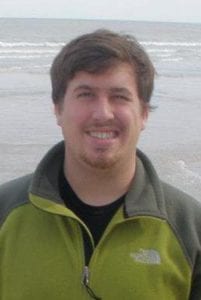 Sam is originally from Indianapolis and received his undergraduate degree from Purdue University in Physics and Math.
Sam is originally from Indianapolis and received his undergraduate degree from Purdue University in Physics and Math.
He received his PhD in Physics and Astronomy at Northwestern, where his research focused on characterizing extrasolar planets as well as studying how planetary systems form and evolve over time.
Joel Schwartz (2013-2015):
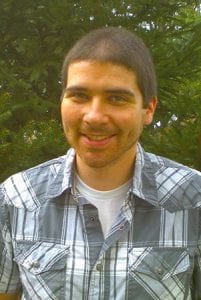 A native of Chicago, Joel earned his BA in Mathematics from Northeastern Illinois University.
A native of Chicago, Joel earned his BA in Mathematics from Northeastern Illinois University.
He received his PhD in Physics & Astronomy at Northwestern, where his research used data obtained from optical eclipses and thermal phase variations for “Hot Jupiter” exoplanets. The objective is to isolate the effects of albedo and heat transport on these select bodies.
Madison Fitzpatrick (2013-2014)
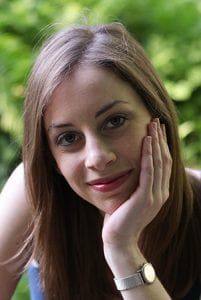 Madison received her undergraduate degree in Civil Engineering at Northwestern university where she later received her PhD in the Transportation Systems Analysis and Planning program.
Madison received her undergraduate degree in Civil Engineering at Northwestern university where she later received her PhD in the Transportation Systems Analysis and Planning program.
Her research focused on statistical modeling of travel behavior, with applications in transportation policy and urban sustainability. In her free time, she plays bass and dances swing, blues, and ballet.
Aaron Oppenheimer (2013-2014)
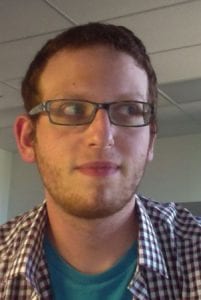 Aaron received his Masters in the Department of Chemical and Biological Engineering at Northwestern. During his graduate studies he worked in the Bagheri Lab. Aaron’s research drew heavily upon the burgeoning field of systems biology with a strong focus on the well-founded concepts in control theory. He later went on to work as a Laboratory Manager at the Francis W. Parker School Aaron enjoys playing music and relaxes with geometric, origami models.
Aaron received his Masters in the Department of Chemical and Biological Engineering at Northwestern. During his graduate studies he worked in the Bagheri Lab. Aaron’s research drew heavily upon the burgeoning field of systems biology with a strong focus on the well-founded concepts in control theory. He later went on to work as a Laboratory Manager at the Francis W. Parker School Aaron enjoys playing music and relaxes with geometric, origami models.
Matthew Rickert (2013-2014)
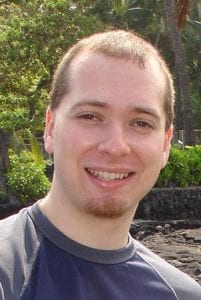 Matthew graduated with a PhD in Astronomy and Physics from Northwestern University in 2017. His advisor was Farhad Yusef-Zadeh. His research involved the use radio telescopes, observing the center of our Milky Way Galaxy in an effort to better distinguish between the dense amount of clouds and energy sources located there. He took a position as a research staff member with a Federally Funded Research Center (FFRDC) in northern Virginia.
Matthew graduated with a PhD in Astronomy and Physics from Northwestern University in 2017. His advisor was Farhad Yusef-Zadeh. His research involved the use radio telescopes, observing the center of our Milky Way Galaxy in an effort to better distinguish between the dense amount of clouds and energy sources located there. He took a position as a research staff member with a Federally Funded Research Center (FFRDC) in northern Virginia.
Carl Rodriguez (2013-2014)
 Carl is originally from Louisiana and received his undergraduate degree in Physics from Reed College. He completed his PhD in Physics and Astronomy from Northwestern University, studying the dynamics of black holes and working with Frederic Rasio. Following his graduate studies, Carl did postdoctoral research at CIERA at Northwestern, Massachusetts Institute of Technology as a Pappalardo Postdoctoral Fellow, and in the Institute for Theory and Computation at the Harvard-Smithsonian Center for Astrophysics. He has begun assistant professor of Physics at Carnegie Mellon University in Pittsburgh.
Carl is originally from Louisiana and received his undergraduate degree in Physics from Reed College. He completed his PhD in Physics and Astronomy from Northwestern University, studying the dynamics of black holes and working with Frederic Rasio. Following his graduate studies, Carl did postdoctoral research at CIERA at Northwestern, Massachusetts Institute of Technology as a Pappalardo Postdoctoral Fellow, and in the Institute for Theory and Computation at the Harvard-Smithsonian Center for Astrophysics. He has begun assistant professor of Physics at Carnegie Mellon University in Pittsburgh.
Jovanaca Smith (2013-2014)
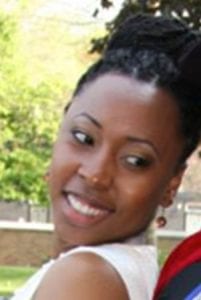 Jovanaca received her PhD in Civil Engineering from Northwestern University, with a focus in Structures. During her graduate studies, Jovanaca’s research was based on fracture mechanics of concrete and involves both laboratory experimentation and numerical modeling. She researched the micromechanics of fiber interaction in concrete. In her free time, Jovanaca loves traveling and spending time with her family.
Jovanaca received her PhD in Civil Engineering from Northwestern University, with a focus in Structures. During her graduate studies, Jovanaca’s research was based on fracture mechanics of concrete and involves both laboratory experimentation and numerical modeling. She researched the micromechanics of fiber interaction in concrete. In her free time, Jovanaca loves traveling and spending time with her family.
Jeremy Watt (2013-2014)
 Jeremy received his B.A. in Religious Studies and his M.S. in Pure Mathematics from Indiana University in Bloomington. He then completed his PhD at Northwestern in Electrical Engineering, studying machine learning and conducts research in the exciting intersection of applied mathematics and big data multimedia applications. Jeremy is now an Adjunct Assistant Professor in Northwestern’s Department of Electrical Engineering. His research interests include machine learning, deep learning, computer vision, numerical optimization for large-scale machine learning
Jeremy received his B.A. in Religious Studies and his M.S. in Pure Mathematics from Indiana University in Bloomington. He then completed his PhD at Northwestern in Electrical Engineering, studying machine learning and conducts research in the exciting intersection of applied mathematics and big data multimedia applications. Jeremy is now an Adjunct Assistant Professor in Northwestern’s Department of Electrical Engineering. His research interests include machine learning, deep learning, computer vision, numerical optimization for large-scale machine learning
Jia Wu (2013-2014)
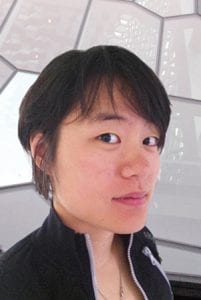 Jia received a bachelors degree in Bioengineering at the University of California, San Diego. She received her PhD from Northwestern in the Interdisciplinary Biological Sciences Program and worked in the Bagheri Lab. As part of her scientific journey so far, she has explored topics such as stem cell fate in fruit flies, computational modeling, and gold nanotechnology.
Jia received a bachelors degree in Bioengineering at the University of California, San Diego. She received her PhD from Northwestern in the Interdisciplinary Biological Sciences Program and worked in the Bagheri Lab. As part of her scientific journey so far, she has explored topics such as stem cell fate in fruit flies, computational modeling, and gold nanotechnology.
Alia Zander (2013-2014)
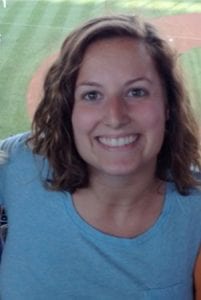 Alia is PhD Candidate at Northwestern’s Driskill Graduate Program in the Life Sciences. She is originally from Michigan where she received a Bachelor’s degree in Biomedical Engineering from the University of Michigan. Her research focuses on transcriptional regulatory circuits involved in suppression of the inflammatory response post infection.
Alia is PhD Candidate at Northwestern’s Driskill Graduate Program in the Life Sciences. She is originally from Michigan where she received a Bachelor’s degree in Biomedical Engineering from the University of Michigan. Her research focuses on transcriptional regulatory circuits involved in suppression of the inflammatory response post infection.
Meagan Morscher (2010-2014)
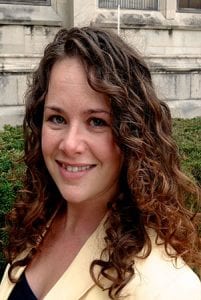 Meagan earned her BS in Physics from the University of Wisconsin – Milwaukee in 2006. She completed her Ph.D. in Physics and Astronomy at Northwestern University. Her research was in computational astrophysics, where she used computer simulations as a tool for studying the dynamics of star clusters containing many stellar mass black holes. As a fellow in the Reach for the Stars (RftS) program, Meagan developed and taught biology and astronomy curriculum in local high schools. She also coordinated a program that connected graduate fellows from both RftS and Ready Set Go (now RCTP, a communication training program for scientists), with local K-12 STEM teachers.
Meagan earned her BS in Physics from the University of Wisconsin – Milwaukee in 2006. She completed her Ph.D. in Physics and Astronomy at Northwestern University. Her research was in computational astrophysics, where she used computer simulations as a tool for studying the dynamics of star clusters containing many stellar mass black holes. As a fellow in the Reach for the Stars (RftS) program, Meagan developed and taught biology and astronomy curriculum in local high schools. She also coordinated a program that connected graduate fellows from both RftS and Ready Set Go (now RCTP, a communication training program for scientists), with local K-12 STEM teachers.
Ramón Torres (2012-2013)
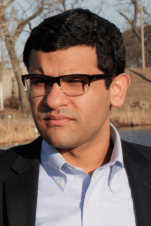 Ramón also holds a S.B. in Aerospace Engineering from the Massachusetts Institute of Technology. He received his PhD in the field of Transportation Systems Analysis and Planning, from Northwestern. His research focused on fundraising for nonprofit organizations. He used stochastic modeling to describe donors’ giving behavior, to then determine which members would be worthwhile targeting, with the purpose of making fundraising marketing efforts more efficient.
Ramón also holds a S.B. in Aerospace Engineering from the Massachusetts Institute of Technology. He received his PhD in the field of Transportation Systems Analysis and Planning, from Northwestern. His research focused on fundraising for nonprofit organizations. He used stochastic modeling to describe donors’ giving behavior, to then determine which members would be worthwhile targeting, with the purpose of making fundraising marketing efforts more efficient.
Jessica Lodewyk (2012-2013)
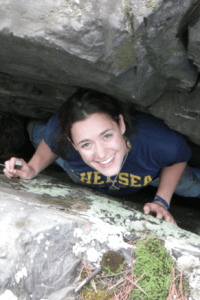 Jessica earned her BA in Earth and Planetary Science from Washington University in St. Louis in 2010. She is a PhD candidate in Department of Earth and Planetary Science at Northwestern, focusing on seismology, the study of earthquakes and wave propagation through the earth. Her current research involves high-performance simulations of seismic waves through the interior of the earth and determining the characteristics of historical earthquakes.
Jessica earned her BA in Earth and Planetary Science from Washington University in St. Louis in 2010. She is a PhD candidate in Department of Earth and Planetary Science at Northwestern, focusing on seismology, the study of earthquakes and wave propagation through the earth. Her current research involves high-performance simulations of seismic waves through the interior of the earth and determining the characteristics of historical earthquakes.
Scott Mayle (2011-2013)
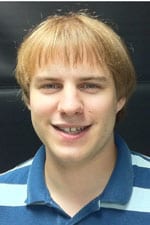 Scott went to the University of Illinois at Urbana-Champaign, receiving a Bachelors in physics with minors in math and chemistry. He received his PhD in Physics at Northwestern University, where he researched in the area of experimental condensed matter mesoscopic physics. He worked with low dimensional carbon based materials e.g. carbon nano-tubes and graphene. By using a variety of low temperature and low noise techniques, he investigated the interplay between these materials with superconductors, magnetic fields, and electric fields to probe new quantum phenomenon observed in these materials.
Scott went to the University of Illinois at Urbana-Champaign, receiving a Bachelors in physics with minors in math and chemistry. He received his PhD in Physics at Northwestern University, where he researched in the area of experimental condensed matter mesoscopic physics. He worked with low dimensional carbon based materials e.g. carbon nano-tubes and graphene. By using a variety of low temperature and low noise techniques, he investigated the interplay between these materials with superconductors, magnetic fields, and electric fields to probe new quantum phenomenon observed in these materials.
Joseph Warfel (2011-2013)
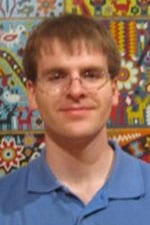 Joseph completed his undergraduate studies at Wabash College, with a degree in Mathematics and Spanish. Joseph taught high school math for three years in Texas. He completed his PhD in Industrial Engineering, focusing on food bank logistics, at Northwestern University. Following his graduate studies, Joseph began working at United Airlines as a Senior Analyst in Statistics and Operation Research, then as a Manager in Data Science.
Joseph completed his undergraduate studies at Wabash College, with a degree in Mathematics and Spanish. Joseph taught high school math for three years in Texas. He completed his PhD in Industrial Engineering, focusing on food bank logistics, at Northwestern University. Following his graduate studies, Joseph began working at United Airlines as a Senior Analyst in Statistics and Operation Research, then as a Manager in Data Science.
David Little (2011-2013)
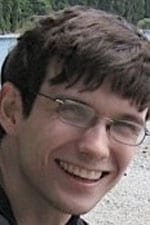 David received his BA in computer and cognitive science from Vassar College. He completed his MS in Computer Science and PhD in Communication Sciences at Northwestern University. His research focused on elucidating the factors that determine whether people do or do not learn new skills, through human experiments and computer models.
David received his BA in computer and cognitive science from Vassar College. He completed his MS in Computer Science and PhD in Communication Sciences at Northwestern University. His research focused on elucidating the factors that determine whether people do or do not learn new skills, through human experiments and computer models.
Dorothy Ahlf Wheatcraft (2011-2012)
 Dorothy received her PhD in Analytical Chemistry from Northwestern University. She then did postdoctoral research at Notre Dame. Her RftS fellowship greatly assisted her ability to work with multiple disciplines and communicate with not only scientists, but everyone she works with. Following her postdoctoral experience, she took a position at The Jackson Laboratory, a non-profit research institute. She runs the Mass Spectrometry and Protein Chemistry core service, which supports over 80 different research labs when they need technological expertise in these areas.
Dorothy received her PhD in Analytical Chemistry from Northwestern University. She then did postdoctoral research at Notre Dame. Her RftS fellowship greatly assisted her ability to work with multiple disciplines and communicate with not only scientists, but everyone she works with. Following her postdoctoral experience, she took a position at The Jackson Laboratory, a non-profit research institute. She runs the Mass Spectrometry and Protein Chemistry core service, which supports over 80 different research labs when they need technological expertise in these areas.
Kristin Labby (2011-2012)
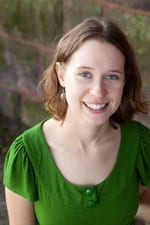 Kristin participated in Reach for the Stars from 2011-2012 during the 5th year of her PhD studies, working with Rick Silverman in the Chemistry Department. Kristin grew up near Milwaukee, WI and earned her BS in chemistry and biochemistry from the University of Wisconsin Madison in 2007. Kristin completed her PhD at Northwestern in 2012 and took a postdoctoral position in chemical biology at the University of Michigan. She was Visiting Assistant Professor of Chemistry at Beloit College from 2014-2016, and in Fall 2016 began as Assistant Professor of Chemistry at Beloit College where she teaches organic chemistry. Her research interests are in the areas of medicinal chemistry and antibiotic resistance.
Kristin participated in Reach for the Stars from 2011-2012 during the 5th year of her PhD studies, working with Rick Silverman in the Chemistry Department. Kristin grew up near Milwaukee, WI and earned her BS in chemistry and biochemistry from the University of Wisconsin Madison in 2007. Kristin completed her PhD at Northwestern in 2012 and took a postdoctoral position in chemical biology at the University of Michigan. She was Visiting Assistant Professor of Chemistry at Beloit College from 2014-2016, and in Fall 2016 began as Assistant Professor of Chemistry at Beloit College where she teaches organic chemistry. Her research interests are in the areas of medicinal chemistry and antibiotic resistance.
Emily Wolin (2011-2012)
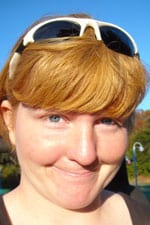 Emily graduated from the University of Colorado at Boulder with a bachelor’s degree in geology and geophysics. She completed her PhD in Northwestern’s Department of Earth & Planetary Sciences, working with Suzan van der Lee, and using seismic tomography to study the 1.1-billion-year-old Midcontinent Rift. Instead of using a CT scanner and x-rays, they deployed an array of seismometers over the Midcontinent Rift in Minnesota, Wisconsin, and Ontario to record seismic waves from earthquakes all over the world. By observing how these seismic waves change as they travel through the earth, they worked on creating images of structures many hundreds of kilometers below the surface. Emily enjoys being a seismologist because she gest to tackle big, complicated questions about our planet and the processes that govern it. In her free time, she enjoys doing anything outdoors, especially hiking, photography, horseback riding, and snowboarding.
Emily graduated from the University of Colorado at Boulder with a bachelor’s degree in geology and geophysics. She completed her PhD in Northwestern’s Department of Earth & Planetary Sciences, working with Suzan van der Lee, and using seismic tomography to study the 1.1-billion-year-old Midcontinent Rift. Instead of using a CT scanner and x-rays, they deployed an array of seismometers over the Midcontinent Rift in Minnesota, Wisconsin, and Ontario to record seismic waves from earthquakes all over the world. By observing how these seismic waves change as they travel through the earth, they worked on creating images of structures many hundreds of kilometers below the surface. Emily enjoys being a seismologist because she gest to tackle big, complicated questions about our planet and the processes that govern it. In her free time, she enjoys doing anything outdoors, especially hiking, photography, horseback riding, and snowboarding.
Matt Schuchhardt (2010-2012)
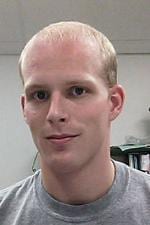 Matt went to Valparaiso University for his undergraduate, and obtained his BS in Computer Engineering. He received his PhD in Computer Engineering with a focus on Computer Architecture from Northwestern University. In his graduate studies, Matt worked in a research group that argues that the actual computer user isn’t considered in the computer design process. By monitoring various biological traits of the user (such as temperature, pupil dilation, heart rate, etc.), he collected information about the user which can be used to improve their computing experience.
Matt went to Valparaiso University for his undergraduate, and obtained his BS in Computer Engineering. He received his PhD in Computer Engineering with a focus on Computer Architecture from Northwestern University. In his graduate studies, Matt worked in a research group that argues that the actual computer user isn’t considered in the computer design process. By monitoring various biological traits of the user (such as temperature, pupil dilation, heart rate, etc.), he collected information about the user which can be used to improve their computing experience.
Daniel Sinkovits (2010-2012)
 Daniel became interested in science from a young age and eventually went to Washington University in St. Louis to major in Physics and Mathematics with a minor in Linguistics. He then started his PhD at the University of Illinois in Urbana-Champaign, but moved to Northwestern University when his advisor was hired by Northwestern University. Daniel completed his PhD in Physics, where his research focused on soft matter and performing computer simulations to investigate how nano-sized particles with different interactions can assemble to form materials of different structures and properties. Outside of work, he enjoys dancing tango, swing, and salsa. He also loves linguistics, especially writing systems, phonology, and prosody. He was particularly interested in Chinese, which he had three years of study.
Daniel became interested in science from a young age and eventually went to Washington University in St. Louis to major in Physics and Mathematics with a minor in Linguistics. He then started his PhD at the University of Illinois in Urbana-Champaign, but moved to Northwestern University when his advisor was hired by Northwestern University. Daniel completed his PhD in Physics, where his research focused on soft matter and performing computer simulations to investigate how nano-sized particles with different interactions can assemble to form materials of different structures and properties. Outside of work, he enjoys dancing tango, swing, and salsa. He also loves linguistics, especially writing systems, phonology, and prosody. He was particularly interested in Chinese, which he had three years of study.
Ben Farr (2010-2011)
 Ben is originally from Holland Patent, a small town in central New York. While at Northwestern, Ben’s research centered on the development and application of data analysis techniques for the detection of gravitational waves. Ben graduated with his PhD in 2014 and took a McCormick Postdoctoral Fellowship in the Enrico Fermi Institute at the University of Chicago. He started as an Assistant Professor at the University of Oregon in 2017.
Ben is originally from Holland Patent, a small town in central New York. While at Northwestern, Ben’s research centered on the development and application of data analysis techniques for the detection of gravitational waves. Ben graduated with his PhD in 2014 and took a McCormick Postdoctoral Fellowship in the Enrico Fermi Institute at the University of Chicago. He started as an Assistant Professor at the University of Oregon in 2017.
Tom Hayden (2010-2011)
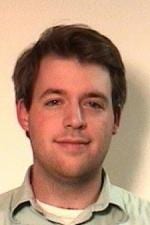 Tom grew up in Troy, Michigan a suburb of Detroit. He has a Bachelors in Telecommunications, Information Studies and Media from Michigan State University and a Masters of Science in Information from the University of Michigan in Ann Arbor. He was also an Northwestern PhD student in theoretical computer science and later an engineer on the fraud team at Facebook and built out the data infrastructure at GrubHub.
Tom grew up in Troy, Michigan a suburb of Detroit. He has a Bachelors in Telecommunications, Information Studies and Media from Michigan State University and a Masters of Science in Information from the University of Michigan in Ann Arbor. He was also an Northwestern PhD student in theoretical computer science and later an engineer on the fraud team at Facebook and built out the data infrastructure at GrubHub.
Daniel Honbo (2010-2011)
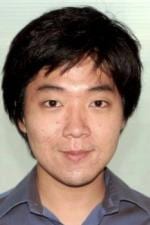 Daniel received a BS in Computer Engineering, with a minor in Economics, and later his PhD in Computer Engineering, from Northwestern University. During his graduate studies, his research focused on the evaluation and specification of novel computer architectures for high performance computing. This involved examining the suitability of commodity co-processing devices, like Graphics Processing Units and Field Programmable Gate Arrays, for various data analytics and scientific computing applications, and designing specialized architectures capable of increasing the performance of time-consuming software programs.
Daniel received a BS in Computer Engineering, with a minor in Economics, and later his PhD in Computer Engineering, from Northwestern University. During his graduate studies, his research focused on the evaluation and specification of novel computer architectures for high performance computing. This involved examining the suitability of commodity co-processing devices, like Graphics Processing Units and Field Programmable Gate Arrays, for various data analytics and scientific computing applications, and designing specialized architectures capable of increasing the performance of time-consuming software programs.
Teacher Fellows
Andrzej Barski (2013-2020)
 Andrzej Barski teaches astronomy at Lake View High School in Chicago. During his time at LVHS he has taught multiple subjects: environmental science, chemistry, physics, earth and space science, topics in science, scientific concepts, and astronomy. He earned his BS in Science (majors in chemistry and astronomy, minor in mathematics) at the University of Illinois at Urbana Champaign, and an MS in Education and Social Policy at the Northwestern University. He is a National Board Certified teacher. He loves hiking and traveling with his family.
Andrzej Barski teaches astronomy at Lake View High School in Chicago. During his time at LVHS he has taught multiple subjects: environmental science, chemistry, physics, earth and space science, topics in science, scientific concepts, and astronomy. He earned his BS in Science (majors in chemistry and astronomy, minor in mathematics) at the University of Illinois at Urbana Champaign, and an MS in Education and Social Policy at the Northwestern University. He is a National Board Certified teacher. He loves hiking and traveling with his family.
GionMatthias Schelbert (2010-2020)
 GionMatthias Schelbert is the Astronomy Teacher at Evanston Township High School. In his early twenties, he founded a successful business and sold it to become a teacher. Prior to ETHS, he taught Physics and Environmental Science at Manley Career Academy High School located on Chicago’s west side. He received his bachelor’s degree in physics from San Jose State University in California. While attending school, he assisted in research at NASA’s Ames Research Center to improve exoplanet detection techniques using photometry. He then received his master’s degree in science education from National Louis University. He spends his summers in Switzerland where he hikes, cooks, swims, and prepares for the upcoming school year.
GionMatthias Schelbert is the Astronomy Teacher at Evanston Township High School. In his early twenties, he founded a successful business and sold it to become a teacher. Prior to ETHS, he taught Physics and Environmental Science at Manley Career Academy High School located on Chicago’s west side. He received his bachelor’s degree in physics from San Jose State University in California. While attending school, he assisted in research at NASA’s Ames Research Center to improve exoplanet detection techniques using photometry. He then received his master’s degree in science education from National Louis University. He spends his summers in Switzerland where he hikes, cooks, swims, and prepares for the upcoming school year.
Bonnie Weiberg (2014-2015 and 2018-2019)
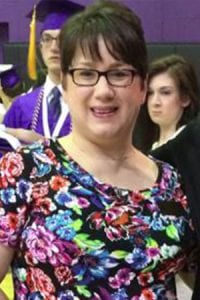 Bonnie Weiberg has been teaching Chemistry and Physics at Niles North High School for 22 years. She received her BS in Chemistry from Elmhurst College, and an M Ed. in Curriculum and Instruction from National Louis University. Bonnie is also a coach of the Math Team and has been a past sponsor of the Junior Class Board and a Cheerleading Coach. When she is not dreaming of atoms reacting to form molecules or the forces that govern their interactions, she enjoys spending time with her three children and husband, watching sports and cooking.
Bonnie Weiberg has been teaching Chemistry and Physics at Niles North High School for 22 years. She received her BS in Chemistry from Elmhurst College, and an M Ed. in Curriculum and Instruction from National Louis University. Bonnie is also a coach of the Math Team and has been a past sponsor of the Junior Class Board and a Cheerleading Coach. When she is not dreaming of atoms reacting to form molecules or the forces that govern their interactions, she enjoys spending time with her three children and husband, watching sports and cooking.
Mark Vondracek (2011-2018)
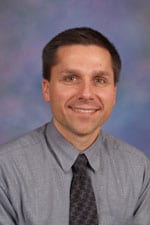 Mark Vondracek has been teaching physics at Evanston Township High School for more than 15 years.
Mark Vondracek has been teaching physics at Evanston Township High School for more than 15 years.
Prior to that, he taught physics at Amundsen High School in the Chicago Public Schools system for three and a half years. Mark earned a doctorate in high energy particle physics from the University of Illinois at Urbana-Champaign.
Daniel DuBrow (2010-2012 and 2016-2017)
 Dan DuBrow is a Physics teacher at Evanston Township High School. During his time at ETHS, he has had the opportunity to teach regular, honors, and AP physics, and astronomy. He has also served as a mentor to a teacher new to Evanston, and as Assistant and Head Chess Coach. Dan also has worked with Northwestern University on such projects as the Center for Talent Development’s summer Equinox (residential, academic program), Northwestern’s online Gifted Learning Links, and recently on the iLabs program, which gives students remote access to equipment to perform authentic studies. Dan earned his bachelor’s degree in physics from the University of Illinois and holds a masters degree in Curriculum & Instruction from National Louis University. Dan likes to enjoy his free time by playing video and board games, reading sci-fi, and going for bike rides when the weather’s nice.
Dan DuBrow is a Physics teacher at Evanston Township High School. During his time at ETHS, he has had the opportunity to teach regular, honors, and AP physics, and astronomy. He has also served as a mentor to a teacher new to Evanston, and as Assistant and Head Chess Coach. Dan also has worked with Northwestern University on such projects as the Center for Talent Development’s summer Equinox (residential, academic program), Northwestern’s online Gifted Learning Links, and recently on the iLabs program, which gives students remote access to equipment to perform authentic studies. Dan earned his bachelor’s degree in physics from the University of Illinois and holds a masters degree in Curriculum & Instruction from National Louis University. Dan likes to enjoy his free time by playing video and board games, reading sci-fi, and going for bike rides when the weather’s nice.
Therese Block (2014-2015)
 Therese Block is currently a STEM teacher at Lincoln Junior High School in Skokie, IL. She has been teaching all levels of math, science and applied technology at Lincoln for over twenty years. She is a certified Project Lead the Way (PLTW) instructor for Design & Modeling and Automation & Robotics. She began her teaching career at the Bernard Zell Anshe Emet Day School in Chicago and moved to Skokie School District 69 in 1994. She holds a BA in math/science education from National Louis University, and an advanced certificate in computer science from DePaul University’s Institute for Professional Development and College of Computing & Digital Media, as well as a Master of Arts in Educational Technology from National Louis University. She loves coaching girls’ basketball and sponsors Lincoln Junior High’s Sci-Tech club. When she’s not at school, she enjoys cycling, reading, and spending as much time as possible with her husband and four children.
Therese Block is currently a STEM teacher at Lincoln Junior High School in Skokie, IL. She has been teaching all levels of math, science and applied technology at Lincoln for over twenty years. She is a certified Project Lead the Way (PLTW) instructor for Design & Modeling and Automation & Robotics. She began her teaching career at the Bernard Zell Anshe Emet Day School in Chicago and moved to Skokie School District 69 in 1994. She holds a BA in math/science education from National Louis University, and an advanced certificate in computer science from DePaul University’s Institute for Professional Development and College of Computing & Digital Media, as well as a Master of Arts in Educational Technology from National Louis University. She loves coaching girls’ basketball and sponsors Lincoln Junior High’s Sci-Tech club. When she’s not at school, she enjoys cycling, reading, and spending as much time as possible with her husband and four children.
Terry Gatchell (2014-2015)
 Terry Gatchell just completed her first year teaching chemistry and physics at ETHS. She is excited about working with GK12 to integrate computational modeling and computer programming into the AP chemistry curriculum, encouraging students to think algorithmically and to appreciate the importance of experimental design, data collection and data analysis. Terry has a B.S. in chemistry, an M.S. in civil and environmental engineering and six years’ experience researching and consulting for the rare earth industry.
Terry Gatchell just completed her first year teaching chemistry and physics at ETHS. She is excited about working with GK12 to integrate computational modeling and computer programming into the AP chemistry curriculum, encouraging students to think algorithmically and to appreciate the importance of experimental design, data collection and data analysis. Terry has a B.S. in chemistry, an M.S. in civil and environmental engineering and six years’ experience researching and consulting for the rare earth industry.
Dianne Lebryk (2014-2015)
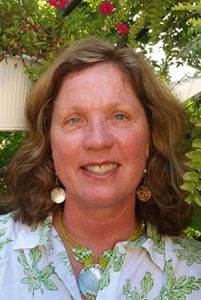 Dianne Lebryk is an AP Environmental Science Instructor at Lane Tech College Prep High School in Chicago. She has served as the Science Fair Coordinator, New Teacher mentor co-director, ALPHA team teacher, and taught in the disciplines of Astronomy, Biology, Geology, Meteorology, Bio-seminar, and Environmental and Earth/Space Sciences. She directed and lead 10 day wilderness expeditions for her students in the summer. She has written science curriculum for the Chicago Botanic Gardens that is available on the NASA website. Also, she worked for National Geographic writing curriculum for the Giant Pacific Ocean traveling map. She is the coordinator for the school rooftop weather station and emergency lightning warning system. Dianne has been teaching High School Science for over 34 years.
Dianne Lebryk is an AP Environmental Science Instructor at Lane Tech College Prep High School in Chicago. She has served as the Science Fair Coordinator, New Teacher mentor co-director, ALPHA team teacher, and taught in the disciplines of Astronomy, Biology, Geology, Meteorology, Bio-seminar, and Environmental and Earth/Space Sciences. She directed and lead 10 day wilderness expeditions for her students in the summer. She has written science curriculum for the Chicago Botanic Gardens that is available on the NASA website. Also, she worked for National Geographic writing curriculum for the Giant Pacific Ocean traveling map. She is the coordinator for the school rooftop weather station and emergency lightning warning system. Dianne has been teaching High School Science for over 34 years.
Katie Page (2014-2015)
 Katie has been teaching Physics for over 20 years. In most recent years, she has integrated using iPads in the classroom. She presented at the ISTE 2014 technology conference to show how technology is being used in the her physics classroom to improve skills, creativity, innovation, and critical thinking. Katie and her husband of over 25 years are raising their 2 teenaged daughters (2 dogs, 2 hamsters, and a fish) in the suburbs of Chicago.
Katie has been teaching Physics for over 20 years. In most recent years, she has integrated using iPads in the classroom. She presented at the ISTE 2014 technology conference to show how technology is being used in the her physics classroom to improve skills, creativity, innovation, and critical thinking. Katie and her husband of over 25 years are raising their 2 teenaged daughters (2 dogs, 2 hamsters, and a fish) in the suburbs of Chicago.
Ellen Gaffney (2013-2015)
 Ellen is currently the Advanced Learning Teacher at Old Orchard Junior High where she teaches Reading, LA, Social Studies and Science. Gaffney has been teaching Engineering and Computer Programming to advanced science students. She began teaching in District 68 over 25 years ago. Gaffney began her teaching career in 2nd grade and has taught 5th grade, and has been teaching gifted education for the past 16 years. She has her BS in Business from Indiana University and my Masters in Teaching from National Louis University. Ellen loves teaching and learning with her students. When she is not at school she enjoys spending time with her two young boys.
Ellen is currently the Advanced Learning Teacher at Old Orchard Junior High where she teaches Reading, LA, Social Studies and Science. Gaffney has been teaching Engineering and Computer Programming to advanced science students. She began teaching in District 68 over 25 years ago. Gaffney began her teaching career in 2nd grade and has taught 5th grade, and has been teaching gifted education for the past 16 years. She has her BS in Business from Indiana University and my Masters in Teaching from National Louis University. Ellen loves teaching and learning with her students. When she is not at school she enjoys spending time with her two young boys.
Aimee Karagiannis (2012-2015)
 Aimee Karagiannis has been teaching science for over 20 years, several of which she has been teaching at Von Steuben Metropolitan Science Center in Chicago, IL. She received her BA in Biology from Wayne State University in Detroit, a MA in Secondary Science Education from Roosevelt University in Chicago, and a MEd Inclusion Specialist from the University of Michigan. Recently she has taught AP Environmental Science, regular Environmental Science and Physics to both juniors and seniors. She is the science department chair and is on the instructional leadership team at Von. When she has some down time you can find her with her son, Alex, or enjoying a book from the library.
Aimee Karagiannis has been teaching science for over 20 years, several of which she has been teaching at Von Steuben Metropolitan Science Center in Chicago, IL. She received her BA in Biology from Wayne State University in Detroit, a MA in Secondary Science Education from Roosevelt University in Chicago, and a MEd Inclusion Specialist from the University of Michigan. Recently she has taught AP Environmental Science, regular Environmental Science and Physics to both juniors and seniors. She is the science department chair and is on the instructional leadership team at Von. When she has some down time you can find her with her son, Alex, or enjoying a book from the library.
Cindy Curtis (2013-2014)
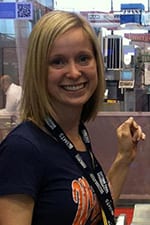 Cindy Curtis is an Engineering teacher in the Career and Technical Education department at Evanston Township High School. She teaches Project Lead the Way (PLTW) Introduction to Engineering Design and Digital Electronics. She earned her BS in Manufacturing Engineering Technology from Western Illinois University and her MS in Technology Education from Illinois State University. She is co-advisor for the school’s Student Ambassador Program and also facilitates the Wildkit Engineering Camp every summer for Middle School students. Cindy is happily married and a mother. When she has a moment of free time she loves to sew and make quilts.
Cindy Curtis is an Engineering teacher in the Career and Technical Education department at Evanston Township High School. She teaches Project Lead the Way (PLTW) Introduction to Engineering Design and Digital Electronics. She earned her BS in Manufacturing Engineering Technology from Western Illinois University and her MS in Technology Education from Illinois State University. She is co-advisor for the school’s Student Ambassador Program and also facilitates the Wildkit Engineering Camp every summer for Middle School students. Cindy is happily married and a mother. When she has a moment of free time she loves to sew and make quilts.
Joseph Serpico (2013-2014)
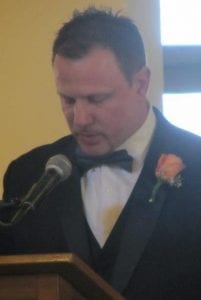 Joseph Serpico has been teaching physics for over 25 years at Niles West High School and has been teaching the summer physics course at Elmhurst College the past 6 years. He holds a BS in Physics with work completed between Georgia State University and Eastern Illinois University and a MA in Education from St. Xavier University. Joe currently is a sponsor for RIOT Club at Niles West. The club’s purpose is to help students develop STEM projects and enter them in regional competitions. Joe has also sponsored numerous ethnic clubs, a rock band club, and the student union. When not contemplating the laws of the universe, Joe enjoys time with his wife and three girls and working/playing on their hobby farm.
Joseph Serpico has been teaching physics for over 25 years at Niles West High School and has been teaching the summer physics course at Elmhurst College the past 6 years. He holds a BS in Physics with work completed between Georgia State University and Eastern Illinois University and a MA in Education from St. Xavier University. Joe currently is a sponsor for RIOT Club at Niles West. The club’s purpose is to help students develop STEM projects and enter them in regional competitions. Joe has also sponsored numerous ethnic clubs, a rock band club, and the student union. When not contemplating the laws of the universe, Joe enjoys time with his wife and three girls and working/playing on their hobby farm.
John Kretsos (2013-2014)
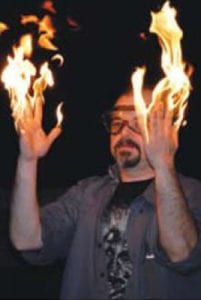 John Kretsos has been teaching Chemistry and Physics for over 25 years. He received his BS in Science Education at the University of Illinois at Urbana Champaign, and an MS in Chemistry from Northeastern Illinois University. He began his career at Carmel High School, and then moved to Antioch Community High School. He has been teaching at his alma mater, Niles North High School. John has also coached Soccer, Chess, Science Olympiad, Scholastic Bowl, and has sponsored the Chemistry club. He has also performed an annual Science Demo show with other science teachers for the community for the past 6 years. This past year, he won a Golden Apple as well as the Davidson Award for outstanding teaching in Chemistry. When he is not obsessing over school work, he enjoys spending time with his wife and three boys, biking, and playing his bass guitar.
John Kretsos has been teaching Chemistry and Physics for over 25 years. He received his BS in Science Education at the University of Illinois at Urbana Champaign, and an MS in Chemistry from Northeastern Illinois University. He began his career at Carmel High School, and then moved to Antioch Community High School. He has been teaching at his alma mater, Niles North High School. John has also coached Soccer, Chess, Science Olympiad, Scholastic Bowl, and has sponsored the Chemistry club. He has also performed an annual Science Demo show with other science teachers for the community for the past 6 years. This past year, he won a Golden Apple as well as the Davidson Award for outstanding teaching in Chemistry. When he is not obsessing over school work, he enjoys spending time with his wife and three boys, biking, and playing his bass guitar.
Jim Thorson (2013-2014)
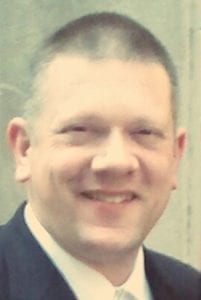 Jim has been teaching high school science for over 15 years. He has worked at Rezin Orr High School, Lincoln Park High School, Niles West High School and Lake View High School (LVHS), where he currently teaches. His teaching assignments have ranged from Biology, Chemistry, Physics and assorted science electives. Jim has coached bowling and sponsored the Science club at LVHS, in Chicago, IL. In addition, he has marched in Chicago Memorial Day parade and Chicago Gay Pride Parade representing LVHS. When he is not teaching, Jim chooses to work a side job with the U.S. Navy Reserve, where he is a Senior Chief Petty Officer. His side job has taken him away to faraway places like Japan, the Republic of Korea, Norway, Italy, Kuwait and the United Arab Emirates.
Jim has been teaching high school science for over 15 years. He has worked at Rezin Orr High School, Lincoln Park High School, Niles West High School and Lake View High School (LVHS), where he currently teaches. His teaching assignments have ranged from Biology, Chemistry, Physics and assorted science electives. Jim has coached bowling and sponsored the Science club at LVHS, in Chicago, IL. In addition, he has marched in Chicago Memorial Day parade and Chicago Gay Pride Parade representing LVHS. When he is not teaching, Jim chooses to work a side job with the U.S. Navy Reserve, where he is a Senior Chief Petty Officer. His side job has taken him away to faraway places like Japan, the Republic of Korea, Norway, Italy, Kuwait and the United Arab Emirates.
Deborah Wilson (2012-2014)
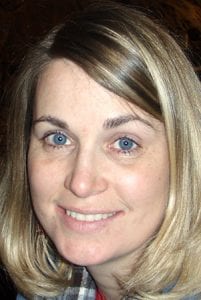 Deborah Wilson teaches mathematics at Highland Park High School. She taught mathematics and computer science at Lincoln Park High School for six years where she created a computer science program that included: web design, programming logic and design, java programming, robotics and cell phone application development. She also taught at Kenwood Academy and Farragut Career Academy as a part of an alternative certification program through Northwestern University (NU-Teach). She earned her B.S. in Civil Engineering from the University of Illinois at Chicago and an M.S. in Human Computer Interaction from DePaul University. When not teaching, she loves to do anything with her son.
Deborah Wilson teaches mathematics at Highland Park High School. She taught mathematics and computer science at Lincoln Park High School for six years where she created a computer science program that included: web design, programming logic and design, java programming, robotics and cell phone application development. She also taught at Kenwood Academy and Farragut Career Academy as a part of an alternative certification program through Northwestern University (NU-Teach). She earned her B.S. in Civil Engineering from the University of Illinois at Chicago and an M.S. in Human Computer Interaction from DePaul University. When not teaching, she loves to do anything with her son.
Marie Breitenstein (2011-2014)
 Marie Breitenstein is a Science teacher at Chute Middle School in Evanston, IL, where she has taught primarily 6th grade for over 20 years. She also acts as the 6th grade team leader and is National Board certified in Early Adolescent Science. Prior to this she taught 6, 7, and 8th grade in Schiller Park, IL for 5 years. She also taught post-secondary Science and did teacher training in the Peace Corps in Liberia, West Africa. She has a bachelor of science in biology from Northeastern Illinois University, a masters in educational administration from National Louis University, and an Ed.D. in Curriculum from National-Louis University. When not teaching, Marie enjoys traveling, reading a good mystery, and biking when weather permits.
Marie Breitenstein is a Science teacher at Chute Middle School in Evanston, IL, where she has taught primarily 6th grade for over 20 years. She also acts as the 6th grade team leader and is National Board certified in Early Adolescent Science. Prior to this she taught 6, 7, and 8th grade in Schiller Park, IL for 5 years. She also taught post-secondary Science and did teacher training in the Peace Corps in Liberia, West Africa. She has a bachelor of science in biology from Northeastern Illinois University, a masters in educational administration from National Louis University, and an Ed.D. in Curriculum from National-Louis University. When not teaching, Marie enjoys traveling, reading a good mystery, and biking when weather permits.
Neil Reimer (2010-2014)
 Neil Reimer is a Chemistry and AP Chemistry teacher at Muchin College Prep, a campus of the Noble Street Charter Network. He is the faculty advisor to the school’s Rube Goldberg design team as well as the faculty advisor to Muchin’s Green Team. Neil earned his Bachelor’s degree in chemistry from the University of Illinois in Urbana and his Master’s in Education in Chemistry Teaching at Loyola University Chicago. When Neil isn’t at school, thinking about school, or reading about school, he can be found golfing, reading a good book, or playing the guitar or drums.
Neil Reimer is a Chemistry and AP Chemistry teacher at Muchin College Prep, a campus of the Noble Street Charter Network. He is the faculty advisor to the school’s Rube Goldberg design team as well as the faculty advisor to Muchin’s Green Team. Neil earned his Bachelor’s degree in chemistry from the University of Illinois in Urbana and his Master’s in Education in Chemistry Teaching at Loyola University Chicago. When Neil isn’t at school, thinking about school, or reading about school, he can be found golfing, reading a good book, or playing the guitar or drums.
Suzy Trzaskus (2012-2013)
 Suzy Trzaskus has been teaching science at Niles North High School in Skokie, IL for over 15 years. She received her BS in Biology Education with a Chemistry minor from Illinois State University and her MA in Teacher Leadership from the University of Illinois, Springfield. For the last 6 years she has taught AP Environmental Science and Chemistry to Juniors and Seniors. She was the Critical Mass Team Leader for her department’s successful entry for the ISTA’s Excellence in Science Award in the 2010/2011 school year. When she is not teaching you can find her wherever her two children are. Some of her favorite activities are coaching her kid’s soccer teams and riding bikes up to Homer’s Ice Cream with her family.
Suzy Trzaskus has been teaching science at Niles North High School in Skokie, IL for over 15 years. She received her BS in Biology Education with a Chemistry minor from Illinois State University and her MA in Teacher Leadership from the University of Illinois, Springfield. For the last 6 years she has taught AP Environmental Science and Chemistry to Juniors and Seniors. She was the Critical Mass Team Leader for her department’s successful entry for the ISTA’s Excellence in Science Award in the 2010/2011 school year. When she is not teaching you can find her wherever her two children are. Some of her favorite activities are coaching her kid’s soccer teams and riding bikes up to Homer’s Ice Cream with her family.
Pamela Sims (2011-2013)
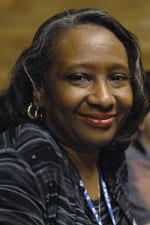 Pam is the science teacher for the Middle School Program at Nettelhorst Elementary School. She has a BA in Interdisciplinary History and a minor in General Science from Grinnell College in Grinnell, Iowa; Pam has a MA in Science Education from National Louis University here in Illinois. She is endorsed in Science, Social Studies, and Language Arts for Middle School in the state of Illinois. She is a member of the Scientific Review Committee for Chicago Public Schools Student Science Fair, Inc. where Pam reviews all endorsement applications for science fair projects from all CPS students in grades 6 through 12 seeking to do project work with vertebrates or human test subjects. Pam is dedicated to education.
Pam is the science teacher for the Middle School Program at Nettelhorst Elementary School. She has a BA in Interdisciplinary History and a minor in General Science from Grinnell College in Grinnell, Iowa; Pam has a MA in Science Education from National Louis University here in Illinois. She is endorsed in Science, Social Studies, and Language Arts for Middle School in the state of Illinois. She is a member of the Scientific Review Committee for Chicago Public Schools Student Science Fair, Inc. where Pam reviews all endorsement applications for science fair projects from all CPS students in grades 6 through 12 seeking to do project work with vertebrates or human test subjects. Pam is dedicated to education.
Sara Ryder (2012)
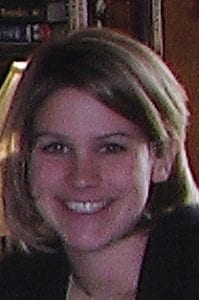 Sara Ryder is an 8th grade science teacher at Old Orchard Junior High School in Skokie. She spent the beginning of her teaching career in Hampton, Virginia teaching middle school science for Jones Magnet Middle School. She grew up in north central Illinois and received her Bachelor’s degree from the University of Illinois. She holds a masters degree in curriculum and instruction from Concordia University Chicago. She is currently working on her ESL endorsement with National Louis University. Sara loves spending time outdoors with her family and two little corgis when she isn’t teaching.
Sara Ryder is an 8th grade science teacher at Old Orchard Junior High School in Skokie. She spent the beginning of her teaching career in Hampton, Virginia teaching middle school science for Jones Magnet Middle School. She grew up in north central Illinois and received her Bachelor’s degree from the University of Illinois. She holds a masters degree in curriculum and instruction from Concordia University Chicago. She is currently working on her ESL endorsement with National Louis University. Sara loves spending time outdoors with her family and two little corgis when she isn’t teaching.
Emily Mason (2011-2012)
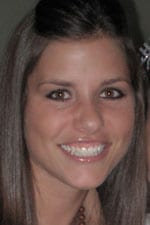 Emily Mason is an Algebra Teacher at Muchin College Prep, a campus of the Noble Street Charter Schools. She was a 2007 St. Louis Teach For America Corps Member, where she taught Pre-Algebra and Algebra to 7th and 8th graders. She then moved to Chicago to help open Muchin College Prep, where she currently teaches Algebra and Honors Algebra to freshmen. Emily earned her bachelor’s degree in psychology from DePauw University in Greencastle, IN, and her teaching certificate at the University of Missouri – St. Louis. She plans on pursuing her Master’s in Education in Secondary Mathematics Teaching this upcoming school year. Emily’s lifelong passion outside of education has always been running, and she thoroughly enjoys coaching Muchin’s cross-country team in the fall.
Emily Mason is an Algebra Teacher at Muchin College Prep, a campus of the Noble Street Charter Schools. She was a 2007 St. Louis Teach For America Corps Member, where she taught Pre-Algebra and Algebra to 7th and 8th graders. She then moved to Chicago to help open Muchin College Prep, where she currently teaches Algebra and Honors Algebra to freshmen. Emily earned her bachelor’s degree in psychology from DePauw University in Greencastle, IN, and her teaching certificate at the University of Missouri – St. Louis. She plans on pursuing her Master’s in Education in Secondary Mathematics Teaching this upcoming school year. Emily’s lifelong passion outside of education has always been running, and she thoroughly enjoys coaching Muchin’s cross-country team in the fall.
Elizabeth Ramseyer (2011-2012)
 Elizabeth Ramseyer is a science teacher at Niles West High School in Skokie, Illinois. She has taught Physics for ovwer 20 years and also currently teaches the Astronomy class she developed in 1997. In addition to teaching at Niles West High School, Elizabeth is an active member of the Stars at Yerkes Observatory organization that was created through her affiliation with ARCS (Astronomy Resources Connecting Schools). Stars at Yerkes Observatory hosts workshops for other teachers who desire to increase their knowledge of the Universe. Elizabeth was also selected as a NITARP teacher (2010). NITARP (NASA/IPAC Teacher Archive Research Program) allowed Elizabeth and her students to work with a JPL scientist and Spitzer Space Telescope data to study super-massive black holes. They presented their findings at the AAS meeting in January 2011. Elizabeth earned her BA in Astronomy (1988) and her MS Ed in Secondary Education (1991) from Northwestern University. Elizabeth enjoys her free time reading, playing sudoku, and relaxing with her family.
Elizabeth Ramseyer is a science teacher at Niles West High School in Skokie, Illinois. She has taught Physics for ovwer 20 years and also currently teaches the Astronomy class she developed in 1997. In addition to teaching at Niles West High School, Elizabeth is an active member of the Stars at Yerkes Observatory organization that was created through her affiliation with ARCS (Astronomy Resources Connecting Schools). Stars at Yerkes Observatory hosts workshops for other teachers who desire to increase their knowledge of the Universe. Elizabeth was also selected as a NITARP teacher (2010). NITARP (NASA/IPAC Teacher Archive Research Program) allowed Elizabeth and her students to work with a JPL scientist and Spitzer Space Telescope data to study super-massive black holes. They presented their findings at the AAS meeting in January 2011. Elizabeth earned her BA in Astronomy (1988) and her MS Ed in Secondary Education (1991) from Northwestern University. Elizabeth enjoys her free time reading, playing sudoku, and relaxing with her family.
Nick Tarantello (2011-2012)
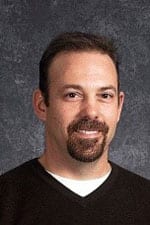 Nick Tarantello is an 8th grade science teacher at Old Orchard Junior High School in Skokie. His most recent teaching experience is in the 8th grade. He is originally from upstate New York, but has lived in the Chicago area since earning his bachelors degree in 1991 from Florida International University. After earning his undergraduate degree and working for several years, he was fortunate enough to be a stay-at-home parent and care for his two children. During that time period he returned to school to earn his masters degree in teaching.
Nick Tarantello is an 8th grade science teacher at Old Orchard Junior High School in Skokie. His most recent teaching experience is in the 8th grade. He is originally from upstate New York, but has lived in the Chicago area since earning his bachelors degree in 1991 from Florida International University. After earning his undergraduate degree and working for several years, he was fortunate enough to be a stay-at-home parent and care for his two children. During that time period he returned to school to earn his masters degree in teaching.
Gina Milanesio (2011-2012)
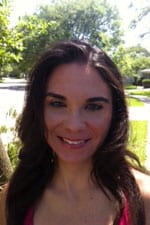 Gina Milanesio has been teaching at Niles North High School since 2003 after completing her bachelor’s degree in Biology at the University of Illinois Urbana-Champaign. Her philosophy is that lesson design is essential to creating an atmosphere of learning science. For three years she taught within the freshman studies program where she coordinated science lesson plans to the social studies and English curriculum. She has presented at ISTA (Illinois Science Teachers Association), NSTA (National Science Teachers Association), and at the Niles Professional Development Township.
Gina Milanesio has been teaching at Niles North High School since 2003 after completing her bachelor’s degree in Biology at the University of Illinois Urbana-Champaign. Her philosophy is that lesson design is essential to creating an atmosphere of learning science. For three years she taught within the freshman studies program where she coordinated science lesson plans to the social studies and English curriculum. She has presented at ISTA (Illinois Science Teachers Association), NSTA (National Science Teachers Association), and at the Niles Professional Development Township.
Her relevant scientific research experience was mainly at the University of Illinois Urbana-Champaign in which she worked on projects concentrating on anti-aging research, systematic botany, and insect behavior. A publication of one of her contributing research projects can be found at Downie, S. R., Feng-Jie S, Katz-Downie D.S., & Colletti G., (2004). “A Phylogenetic Study of Perideridia (Apiaceae) Based on Nuclear Ribosomal DNA ITS Sequences.” Systematic Botany, 29 (3) pp. 737-751. Her relevant science education experience was through her consultant work in the Belleville School District, Action Research projects, and James Scholar projects through the University of Illinois Urbana-Champaign.
Andrew Augustine (2010-2011)
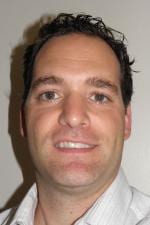 Andrew Augustine is a 7th grade science teacher at Old Orchard Junior High in Skokie. He spent the beginning of his career in Alexandria, Virginia teaching middle school science for Fairfax County Public Schools. He grew up in northern Indiana and received his bachelor’s degree in education from Indiana University Bloomington. His Midwest roots brought him to the Chicago area. He holds a masters degree in curriculum and instruction from Concordia University Chicago. Andrew likes to spend his time outside of school encouraging his young space loving son and bug loving daughter to continue to wonder and ask questions.
Andrew Augustine is a 7th grade science teacher at Old Orchard Junior High in Skokie. He spent the beginning of his career in Alexandria, Virginia teaching middle school science for Fairfax County Public Schools. He grew up in northern Indiana and received his bachelor’s degree in education from Indiana University Bloomington. His Midwest roots brought him to the Chicago area. He holds a masters degree in curriculum and instruction from Concordia University Chicago. Andrew likes to spend his time outside of school encouraging his young space loving son and bug loving daughter to continue to wonder and ask questions.
Ami LeFevre (2010-2011)
 Ami LeFevre is a science teacher at Niles West High School in Skokie, Illinois. She has taught Chemistry and Advanced Placement Biology. In addition to teaching at Niles West High School, Ami is an adjunct professor for North Park University. Ami is a National Board Certified teacher in Chemistry, earned a Masters in Education degree from DePaul University (1993), and a Bachelors in Science degree from North Park College (1991). She is an active member of the American Chemical Society as a Chair of the Chem Matters Advisory Board, member of the Chem Club Advisory Board, and Research Fellowship Coordinator for the Chicago area. For fun Ami likes to play soccer and softball and spend time with her family.
Ami LeFevre is a science teacher at Niles West High School in Skokie, Illinois. She has taught Chemistry and Advanced Placement Biology. In addition to teaching at Niles West High School, Ami is an adjunct professor for North Park University. Ami is a National Board Certified teacher in Chemistry, earned a Masters in Education degree from DePaul University (1993), and a Bachelors in Science degree from North Park College (1991). She is an active member of the American Chemical Society as a Chair of the Chem Matters Advisory Board, member of the Chem Club Advisory Board, and Research Fellowship Coordinator for the Chicago area. For fun Ami likes to play soccer and softball and spend time with her family.
Lisa McKenna (2010-2011)
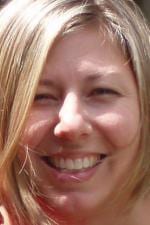 Lisa McKenna has been a science teacher at Niles North high school for over 15 years. She has experience teaching regular level Biology, honors level Biology and Chemistry. She has spent the last few summers taking technology and content courses and spent a week writing curriculum for the Genetic Science Learning Center in Utah. Lisa earned her bachelor’s degree in Biology from the University of Dayton and holds a masters degree in Teaching and Learning from DePaul University. Lisa also enjoys spending lots of time with her three boys at the lake fishing and swimming.
Lisa McKenna has been a science teacher at Niles North high school for over 15 years. She has experience teaching regular level Biology, honors level Biology and Chemistry. She has spent the last few summers taking technology and content courses and spent a week writing curriculum for the Genetic Science Learning Center in Utah. Lisa earned her bachelor’s degree in Biology from the University of Dayton and holds a masters degree in Teaching and Learning from DePaul University. Lisa also enjoys spending lots of time with her three boys at the lake fishing and swimming.
Leadership
Vicky Kalogera
 Vicky Kalogera is the co-founder and the current director of the Center for Interdisciplinary Exploration and Research in Astrophysics (CIERA) and the Daniel I. Linzer Distinguished University Professor in the Department of Physics and Astronomy in the Weinberg College of Arts and Sciences at Northwestern. Kalogera is a leading astrophysicist in the LIGO Scientific Collaboration (LSC), LIGO being the telescopes that first detected gravitational waves in 2015. An expert in the astrophysics of black holes and neutron stars and in LIGO data analysis, Kalogera has been a member of the LSC for more than 15 years, and was elected a member of the US National Academy of Sciences in 2018. Kalogera’s astrophysics research involves methods from applied mathematics, statistics and computer science, with extensive use of high-performance computing. In parallel to her gravitational-wave source studies, Kalogera also studies the formation and evolution of stars and their remnants detectable as gamma-ray, X-ray, and radio pulsar sources in the electromagnetic spectrum in a wide range of stellar environments. For her research she has been recognized by numerous awards; most recently she was awarded the 2018 Heineman Prize for Astrophysics by the American Institute for Physics and the American Astronomical Society.
Vicky Kalogera is the co-founder and the current director of the Center for Interdisciplinary Exploration and Research in Astrophysics (CIERA) and the Daniel I. Linzer Distinguished University Professor in the Department of Physics and Astronomy in the Weinberg College of Arts and Sciences at Northwestern. Kalogera is a leading astrophysicist in the LIGO Scientific Collaboration (LSC), LIGO being the telescopes that first detected gravitational waves in 2015. An expert in the astrophysics of black holes and neutron stars and in LIGO data analysis, Kalogera has been a member of the LSC for more than 15 years, and was elected a member of the US National Academy of Sciences in 2018. Kalogera’s astrophysics research involves methods from applied mathematics, statistics and computer science, with extensive use of high-performance computing. In parallel to her gravitational-wave source studies, Kalogera also studies the formation and evolution of stars and their remnants detectable as gamma-ray, X-ray, and radio pulsar sources in the electromagnetic spectrum in a wide range of stellar environments. For her research she has been recognized by numerous awards; most recently she was awarded the 2018 Heineman Prize for Astrophysics by the American Institute for Physics and the American Astronomical Society.
Michelle Paulsen
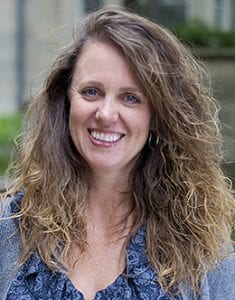
Michelle Paulsen is the Program Director and co-investigator for Reach for the Stars. She has over 20 years of experience in science education, having taught chemistry and physics at Deerfield High School and as chair of the science department at Maine South High School. She has served as adjunct faculty in science education programs at both Northwestern and National Louis Universities, and currently teaches a course in Science Communication at Northwestern. In addition to the Reach for the Stars program, Michelle is the co-founder and director of Northwestern’s Research Communication Training Program (RCTP).
Kemi Jona
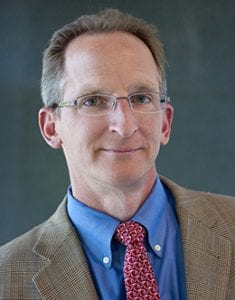 Dr. Kemi Jona has worked at the forefront of the learning sciences and learning technologies fields for over 25 years. He leads digital innovation and enterprise learning partnerships at Northeastern University in Boston, focusing on creating new learning pathways for learners of all ages. He has launched partnerships with GE, IBM, Google, Coursera, Year Up, and others.
Dr. Kemi Jona has worked at the forefront of the learning sciences and learning technologies fields for over 25 years. He leads digital innovation and enterprise learning partnerships at Northeastern University in Boston, focusing on creating new learning pathways for learners of all ages. He has launched partnerships with GE, IBM, Google, Coursera, Year Up, and others.
As a Research Professor at Northwestern University, he led over $2M/year in externally funded research projects in advanced learning technologies, computational thinking, design thinking, online and blended learning, and new game-based approaches to engaging youth in interest-driven STEAM learning, making, and tinkering. He was the founder and director of the Office of STEM Education Partnerships, forging relationships with the K-12 STEM education community. Dr. Jona was formerly on faculty at Carnegie Mellon where he designed innovative online professional master’s programs in software engineering, e-business, and learning sciences.
He continues to be a consultant on learning sciences research, strategy, and design. The author of numerous articles and conference papers on learning technology and design, he holds a Ph.D. in Computer Science from Northwestern University.
Laura Trouille
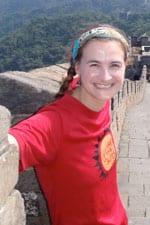 Laura grew up in Evanston, IL and was extremely grateful for the opportunity to give back to the community that was so supportive of her interest in science. After her CIERA postdoctoral fellowship at Northwestern University, Laura was jointly appointed as an astronomer at Northwestern and the Adler Planetarium. In July 2015 she happily accepted the position of Director of Citizen Science at the Adler Planetarium and co-I for Zooniverse. In this role, she leads the online citizen science Zooniverse.org web development and Teen Programs teams. She is also a Research Associate at Northwestern University.
Laura grew up in Evanston, IL and was extremely grateful for the opportunity to give back to the community that was so supportive of her interest in science. After her CIERA postdoctoral fellowship at Northwestern University, Laura was jointly appointed as an astronomer at Northwestern and the Adler Planetarium. In July 2015 she happily accepted the position of Director of Citizen Science at the Adler Planetarium and co-I for Zooniverse. In this role, she leads the online citizen science Zooniverse.org web development and Teen Programs teams. She is also a Research Associate at Northwestern University.
Daryl Haggard
 Daryl received her B.A. in Philosophy from St. John’s College (Santa Fe, NM) in 1995, a M.S. in Physics from San Francisco State University in 2004, an a Ph.D. in Astronomy from the University of Washington (Seattle, WA) in 2010. As a graduate student Daryl was an NSF GK-12 Fellow (2001) and a NASA Harriett Jenkins Fellow (2005-2008), as well as a founding member of the University of Washington’s Pre-Major in Astronomy Program (2005). In 2010 She joined the Center for Interdisciplinary Research and Exploration at Northwestern University as a Postdoctoral Fellow, where she worked with the Reach for the Stars program. In 2014 she moved to a faculty position at Amherst College (Amherst, MA) and in 2015 she moved to a second faculty position at McGill University (Montreal, Quebec, Canada). Haggard’s research interests include X-ray active galaxies, AGN, AGN-host galaxy connections, black holes (stellar to supermassive), accreting compact binaries, and multi-wavelength and time domain surveys.
Daryl received her B.A. in Philosophy from St. John’s College (Santa Fe, NM) in 1995, a M.S. in Physics from San Francisco State University in 2004, an a Ph.D. in Astronomy from the University of Washington (Seattle, WA) in 2010. As a graduate student Daryl was an NSF GK-12 Fellow (2001) and a NASA Harriett Jenkins Fellow (2005-2008), as well as a founding member of the University of Washington’s Pre-Major in Astronomy Program (2005). In 2010 She joined the Center for Interdisciplinary Research and Exploration at Northwestern University as a Postdoctoral Fellow, where she worked with the Reach for the Stars program. In 2014 she moved to a faculty position at Amherst College (Amherst, MA) and in 2015 she moved to a second faculty position at McGill University (Montreal, Quebec, Canada). Haggard’s research interests include X-ray active galaxies, AGN, AGN-host galaxy connections, black holes (stellar to supermassive), accreting compact binaries, and multi-wavelength and time domain surveys.
Darren Gergle
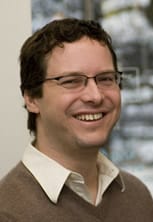 Darren Gergle is an Assistant Professor in the departments of Communication Studies and Computer Science at Northwestern University. He is a member of the Center for Technology and Social Behavior. Gergle advises students in Communication Studies, Computer Science and the Technology and Social Behavior joint PhD in Computer Science and Communication Studies. His research laboratory is the CollaboLab. Gergle’s research is in the fields of Human-Computer Interaction (HCI), Computer-Supported Cooperative Work (CSCW) and Computer-Mediated Communication (CMC) with an interest in developing a theoretical understanding of the role that visual information plays in supporting communication and small group interactions. A key component of his work is the application of social and cognitive psychology theory to the design, deployment and evaluation of computing technologies.
Darren Gergle is an Assistant Professor in the departments of Communication Studies and Computer Science at Northwestern University. He is a member of the Center for Technology and Social Behavior. Gergle advises students in Communication Studies, Computer Science and the Technology and Social Behavior joint PhD in Computer Science and Communication Studies. His research laboratory is the CollaboLab. Gergle’s research is in the fields of Human-Computer Interaction (HCI), Computer-Supported Cooperative Work (CSCW) and Computer-Mediated Communication (CMC) with an interest in developing a theoretical understanding of the role that visual information plays in supporting communication and small group interactions. A key component of his work is the application of social and cognitive psychology theory to the design, deployment and evaluation of computing technologies.
Alexandria Romasanta
 Alexandria graduated from the University of Illinois at Urbana-Champaign in 2016; she studied Linguistics and Political Science with supporting coursework in Data Science. Alexandria works on various Education and Outreach programs at CIERA including Reach for the Stars, the NSF-funded Integrated Data-Driven Discovery in Earth and Astrophysical Sciences (IDEAS) graduate student National Research Traineeship, and CIERA’s Summer High School Research in Astronomy Experience. In 2019, Alexandria rebuilt the Reach for the Stars website.
Alexandria graduated from the University of Illinois at Urbana-Champaign in 2016; she studied Linguistics and Political Science with supporting coursework in Data Science. Alexandria works on various Education and Outreach programs at CIERA including Reach for the Stars, the NSF-funded Integrated Data-Driven Discovery in Earth and Astrophysical Sciences (IDEAS) graduate student National Research Traineeship, and CIERA’s Summer High School Research in Astronomy Experience. In 2019, Alexandria rebuilt the Reach for the Stars website.
Partnering Schools and Student Demographics
Partnering Schools and Libraries
Evanston Township High School, Maine East High School, Muchin College Prep, Niles North High School, Niles West High School, Old Orchard Junior High, Chute Middle School, Nettelhorst Elementary School, Lincoln Park High School, Von Steuben Metropolitan High School, Highland Park High School, Ole A. Thorp Elementary Scholastic Academy, Lane Tech High School, Lincoln Junior High School, Prospect High School, Lake View High School, Northwestern Academy for Chicago Public Schools, and the Chicago Public Library
Reach for the Stars Grades 6-12: Student Demographics
|
Academic Year | Hispanic/Latinx | Black | White | Other Non-White | Low Income |
| 2010-2011 | 18.6% | 16.8% | 38.0% | 26.6% | 43.4% |
| 2011-2012 | 26.0% | 24.4% | 33.9% | 15.7% | 45.0% |
| 2012-2013 | 23.7% | 24.3% | 37.1% | 14.8% | 48.4% |
| 2013-2014 | 26.5% | 20.8% | 36.3% | 16.4% | 49.2% |
| 2014-2015 | 28.7% | 14.4% | 37.7% | 19.1% | 51.5% |
| 2015-2016 | 33.0% | 24.7% | 33.0% | 9.2% | 56.7% |
| 2016-2017 | 17.0% | 31.0% | 43.0% | 9.0% | 41.0% |
| 2017-2018 | 35.3% | 21.3% | 35.0% | 8.4% | 48.7% |
| 2018-2019 | 33.3% | 33.0% | 20.7% | 13.0% | 59.0% |
| 2019-2020 | 43.8% | 25.8% | 25.2% | 5.2% | 54.3% |
